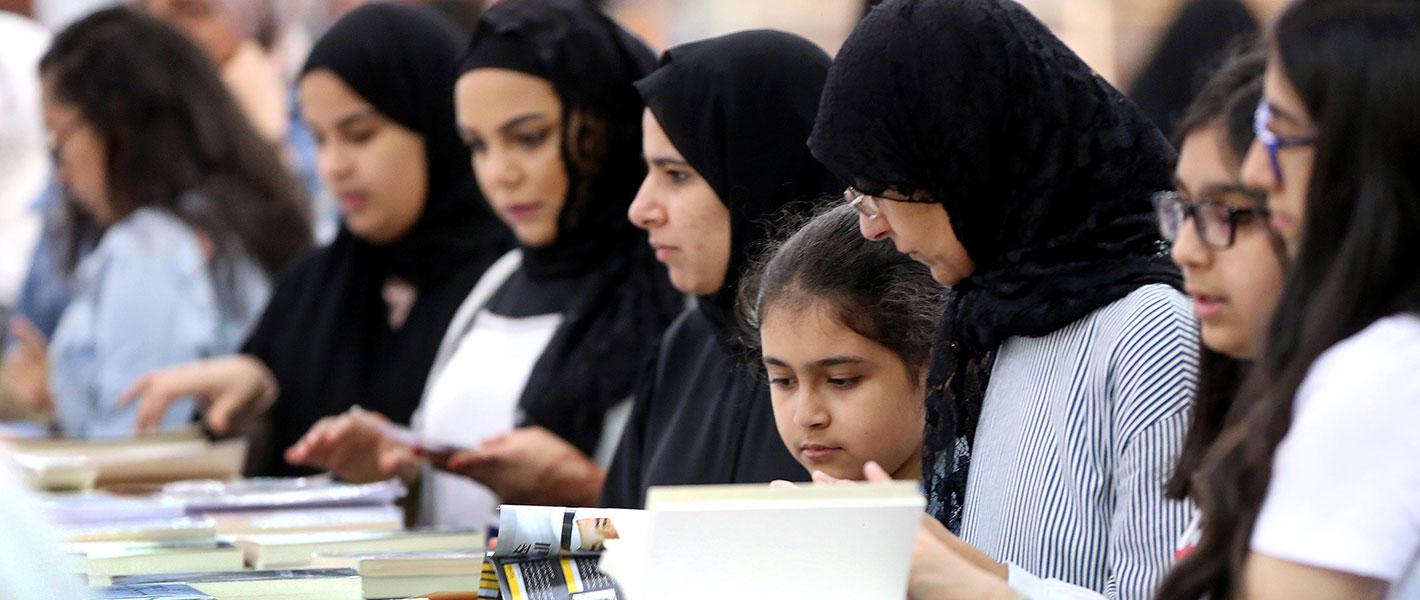{
"authors": [
"Sharifah Alhinai"
],
"type": "commentary",
"blog": "Sada",
"centerAffiliationAll": "dc",
"centers": [
"Carnegie Endowment for International Peace"
],
"collections": [],
"englishNewsletterAll": "menaTransitions",
"nonEnglishNewsletterAll": "",
"primaryCenter": "Carnegie Endowment for International Peace",
"programAffiliation": "MEP",
"programs": [
"Middle East"
],
"projects": [],
"regions": [],
"topics": []
}
Source: Getty
Challenging Narratives on Disability, Womanhood, and Arabness Through Literature: A Memoir from the Gulf
Kuwaiti academic and author Shahd Alshammari reflects on her groundbreaking memoir which challenges the dominant narrative of silence around disability and women’s bodies.
“All I want is to wake up…If I manage to write, then I stayed awake. How to call upon my internal narrator to tell the story of a body, of a self that is trapped inside, yet completely convinced that there is no way out—except through the body? I am aware that time will have its say. I have perpetually sleepy eyes, and my eye muscles are closing in on me, bringing me disturbingly closer to myself. I have to look inside. What follows will be what comes through.”
Thus begins Head Above Water: Reflections on Illness, a powerful memoir by Dr. Shahd Alshammari, a Kuwaiti-Palestinian author and assistant professor of English literature at the Gulf University of Science and Technology. The book chronicles Alshammari's life with Multiple Sclerosis (MS), a chronic disease that affects the central nervous system.

Alshammari was diagnosed with MS when she was just 18 years old. What followed was risky medical experimentation, a search for home within her body, and a decades-long process of learning to live with a disability that is not always visible to others, while simultaneously navigating racism, ableism, and sexism. Detailed over the book’s 171 pages, her reflections present a refreshingly raw and bold narrative of both illness and life as an Arab woman.
“I turned to writing to attempt to change the dominant narrative of silence around women’s bodies and more specifically the ill/disabled body (both men and women),” says Alshammari. “I wanted to discuss what it’s like living in a very ableist society, by placing my experience with illness at the center of the narrative, but also expand to discuss larger issues of ableism and sexism that affect both women and men.”
Alshammari’s decision to reveal intimate details about her life, such as the discrimination she faced as a disabled woman in academia and her memories of avoiding the Palestinian dialect after the Second Gulf War for fear of social ostracism, is not a path commonly pursued by writers of the Gulf region and broader Arab world, especially women. “I think there’s so much stigma and shame surrounding women’s narratives,” answers Alshammari when asked why that is the case. “Nonfiction doesn’t get much attention even in school curriculums (let alone university). Poetry and fiction get more attention.” She adds, “I want it [Head Above Water] to be added to the work produced by Gulf writers writing about the region and from the region. I want it to be an ‘own voice’ narrative that challenges dominant narratives of disability, illness, Arabness, and womanhood.”

It was not easy for Alshammari to chronicle her personal experiences, and she admits that she even took a two-year break after initially beginning work on the book in the 2010s. She describes the difficulties associated with writing a nonfiction narrative: “The internal challenges came from a sense of finding a balance between being vulnerable and still being seen as [a] respected professor. There was a very fine line between both of these identities.”
Ultimately, however, the decision to publish the memoir stemmed from Alshammari's belief that “change begins from writing, speaking, and our voices.” She says, “I needed these experiences to be shared with others who could either inspire change in their own communities or change their thinking themselves. When we write about our life narratives, we want a better future and a better life for future generations. As a teacher, this is always at the heart of my life’s experiences and goals.”
Regarding her hopes for the future of writing in the region, Alshammari shares, “I want more illness narratives to be published, [and] ableism to be considered when we start the important conversations of sexism, patriarchy, and racism. I want to see real lived experiences of navigating the world we live in through the bodies we are born with.” She continues, “I want to see publishers actually interested in this type of work. I want both men and women to write about these intimate and vulnerable experiences of what it means to be human, ill, disabled, struggling with grief and survival. I want to see a de-stigmatization of the ill/disabled body, and this can only happen with more work produced and shared.”
Sharifah Alhinai is the founder of Sekka and the Khaleeji Art Museum. She is a graduate of SOAS and the University of Oxford, and the recipient of the Arab Woman Award 2020. Follow her on Twitter: @sharifahalhinai.
Note
Head Above Water: Reflections on Illness will be available to readers on May 30, 2022.
About the Author
Sharifah Alhinai
Carnegie does not take institutional positions on public policy issues; the views represented herein are those of the author(s) and do not necessarily reflect the views of Carnegie, its staff, or its trustees.
